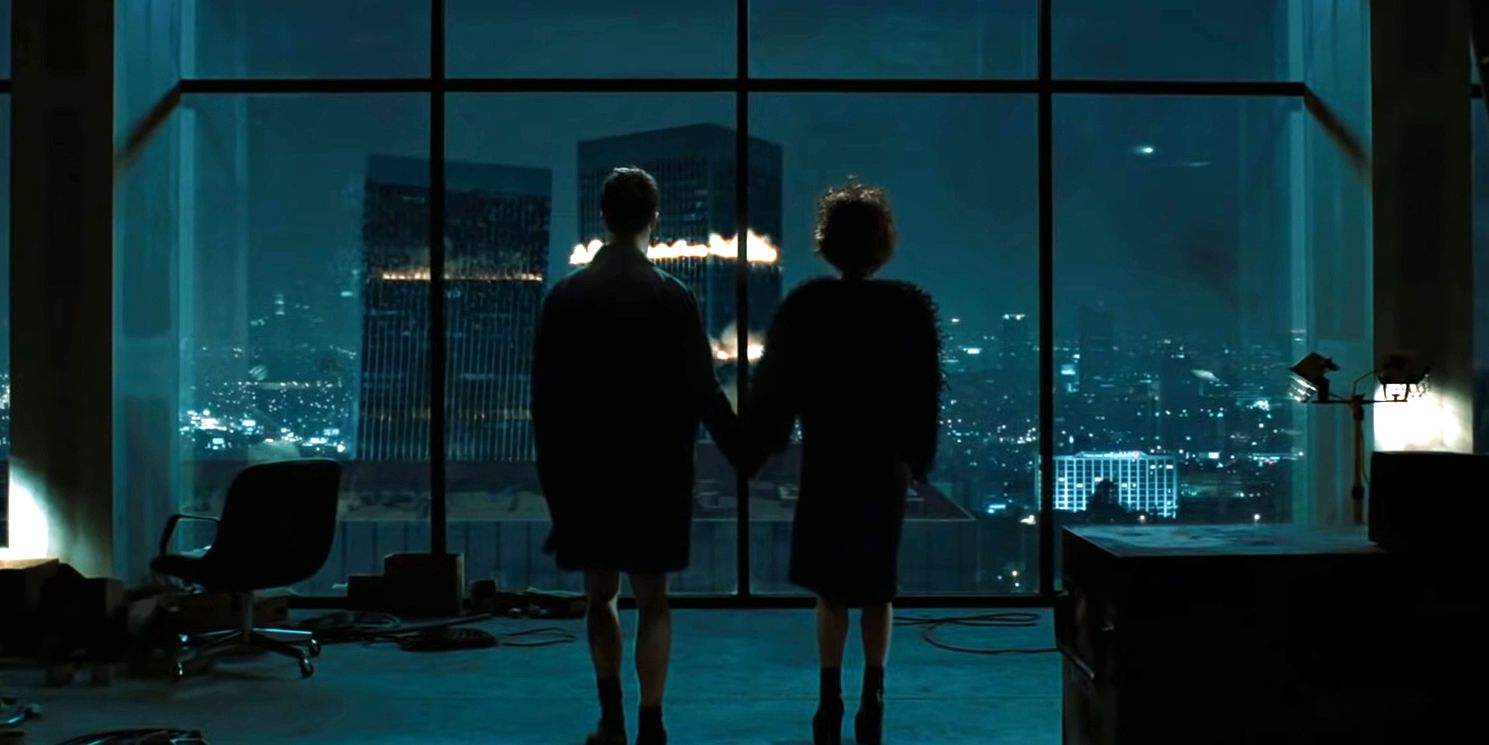Chuck Palahniuk, author of the Fight Club novel adapted into the movie of the same name, sarcastically praises the censored ending of the cut shown in China. The film, which was directed by David Fincher, released in 1999 to polarizing reviews and an underwhelming performance at the box office. Since then, however, it has developed a significant cult following and received critical reappraisal as a significant, if controversial, work.
Fight Club satirizes a number of subjects in boundary-pushing fashion, one of which is the very concept of social order being valuable. The all-male fight clubs established by the protagonist develop into Project Mayhem, a cult-like organization that aims to disrupt the workings of materialist, corporate America through actions that escalate from vandalism to terrorism. At the end of the film, the group succeeds in demolishing buildings that hold credit card records, erasing all debt and effectively hitting society's reset button.
However, this ending proved too disruptive for Chinese censors, who re-edited Fight Club for its streaming release to remove the explosions and tack on a title-card explaining the authorities' victory and the Narrator's subsequent hospitalization. Now, Palahniuk has caught wind of the new ending, and he takes to social media to sarcastically endorse the rewrite. He then expands on his message via his Substack, writing, "Tyler and the gang were all arrested. He was tried and sentenced to a mental asylum. How amazing. I’d no idea! Justice always wins. Nothing ever exploded. Fini."
Click here to see the original post
China has a long history of censoring movies from foreign countries, and for a variety of reasons. In this instance, Fight Club's ending was clearly too subversive of authority, and in a move reminiscent of the classic Hollywood Hays Code, the disruptive Project Mayhem was not allowed to be victorious by the time credits rolled - even if that victory wasn't intended to be celebratory. The irony of the government stepping in to restore meaningless order hasn't been lost on fans, who have trolled the alternate ending on social media.
Even if Fight Club fans might grimace at the connection, the movie's brush with the Chinese censor shrinks its degrees of separation from the Marvel Cinematic Universe. Though the franchise has catered to the body's requirements on Chinese representation in the past, not wanting to exclude itself from the world's second-largest movie market, both Shang-Chi and Eternals didn't release in China due to past disparaging comments from the former's star, Simu Liu, and the latter's director, Chloé Zhao. The streaming version of Fight Club certainly won't be the last film altered for Chinese audiences, but the next one probably won't be so obviously humorous.
Source: Chuck Palahniuk

